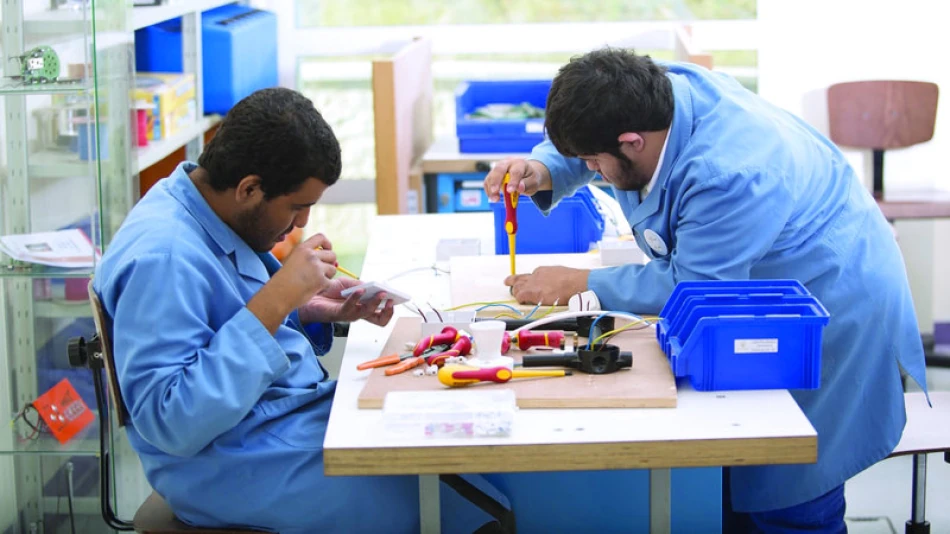
Empowering Individuals with Disabilities: 4 Awards Recognizing Outstanding Service Initiatives
UAE Launches Comprehensive Awards System to Champion Disability Inclusion Across Society
The United Arab Emirates is positioning itself as a regional leader in disability rights through an ambitious framework of four major awards programs designed to recognize excellence in supporting people of determination. This systematic approach reflects the country's broader strategy to create an inclusive society while establishing measurable benchmarks for institutional performance in accessibility and integration.
Strategic Framework for Social Integration
The UAE's approach to disability inclusion extends far beyond symbolic gestures, embedding recognition systems into core sectors including education, healthcare, transportation, tourism, and employment. This comprehensive strategy mirrors successful models in Singapore and Denmark, where government-led initiatives have transformed societal attitudes toward disability through institutional incentives.
The awards system addresses a critical gap in the Middle East, where disability inclusion has traditionally lagged behind economic development. By creating competitive recognition programs, the UAE is essentially gamifying social progress, encouraging both public and private sectors to innovate in accessibility solutions.
Four Pillars of Recognition
Abu Dhabi Excellence Award for Integration
The Abu Dhabi Excellence Award for Integration of People of Determination targets organizations across public, private, and third sectors. The award specifically evaluates integrated services in health, education, transportation, tourism, and culture, while assessing both physical and digital accessibility infrastructure.
This approach reflects lessons learned from the Americans with Disabilities Act implementation, where comprehensive sector coverage proved more effective than piecemeal reforms. By incentivizing employment integration alongside service delivery, the award addresses the economic dimension of inclusion that often receives insufficient attention in developing markets.
Sharjah Voluntary Work Award (Himma)
The Sharjah initiative recognizes people of determination who contribute the highest number of volunteer hours, fundamentally challenging traditional narratives that position disabled individuals as service recipients rather than community contributors. This paradigm shift aligns with global disability rights movements that emphasize agency and participation over charity-based models.
Zayed Higher Organization's Community Excellence Award
The Zayed Foundation's Community Excellence Award creates competitive opportunities for people of determination, their families, and supporting organizations. By emphasizing talent development and achievement recognition, this program addresses the confidence and visibility gaps that often limit disabled individuals' participation in economic and social activities.
The award's focus on institutional support systems recognizes that individual achievement requires systemic enablement—a principle successfully demonstrated in Nordic countries where comprehensive support networks have produced exceptional outcomes in disability employment and social integration.
Khalifa Educational Award
The specialized branch of the Khalifa Educational Award targets special education professionals, including teachers, psychologists, speech therapists, occupational therapists, and specialized institutions. This professional recognition system addresses the critical shortage of qualified special education professionals across the Middle East region.
By elevating the status of special education careers, the UAE is tackling a fundamental bottleneck that limits educational outcomes for disabled students. This mirrors successful teacher recognition programs in Finland and South Korea, where professional prestige correlates directly with educational quality.
Digital Integration Through Unified Card System
The Ministry of Family Affairs and Zayed Higher Organization are developing a unified identification card system, scheduled for implementation by January 2026. This digital infrastructure initiative represents a significant leap toward seamless service access, eliminating bureaucratic barriers that traditionally complicate disability support services.
The unified card system addresses fragmentation issues common in federal systems, where multiple agencies and jurisdictions create administrative complexity. By standardizing diagnosis and assessment criteria while harmonizing legislation across federal and local levels, the UAE is creating a blueprint that other Gulf states are likely to emulate.
Economic and Social Implications
This comprehensive awards framework signals the UAE's recognition that disability inclusion represents both a social imperative and an economic opportunity. With approximately 15% of the global population experiencing some form of disability, countries that successfully integrate this demographic gain access to significant talent pools and consumer markets.
The timing aligns with the UAE's Vision 2071 goals and positions the country to attract international organizations and businesses seeking inclusive operational environments. As multinational corporations face increasing pressure to demonstrate environmental, social, and governance (ESG) compliance, the UAE's systematic approach to disability inclusion creates competitive advantages in attracting foreign investment and talent.
The success of this initiative will likely influence regional approaches to disability rights and could establish the UAE as a hub for inclusive innovation in the Middle East, similar to how Singapore became a center for accessible technology development in Southeast Asia.
Most Viewed News

 Sara Khaled
Sara Khaled






